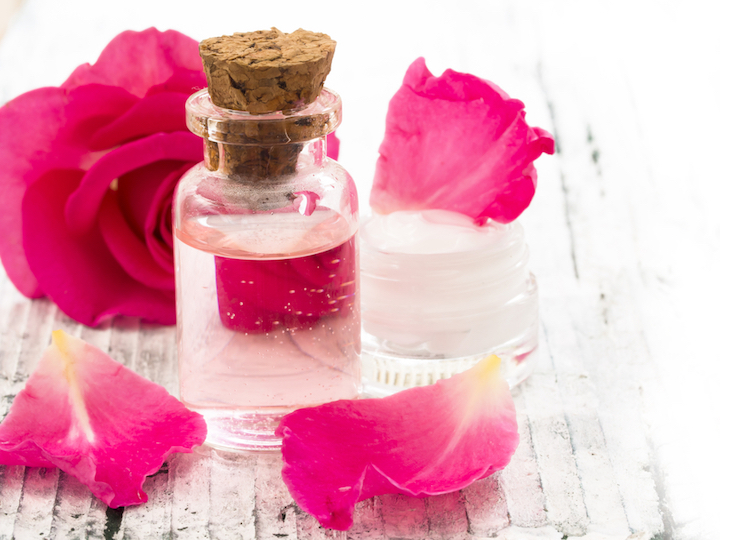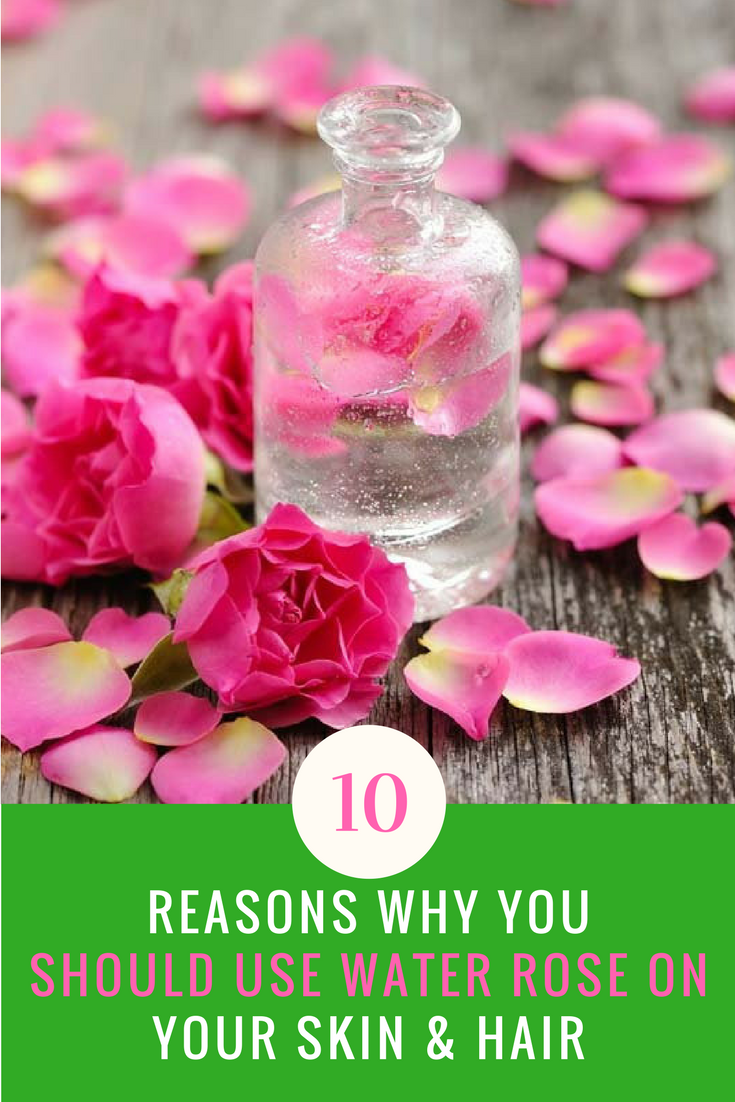
[adinserter block=”1″]
Rose Water. The name alone is evocative of timelessness and beauty, femininity, a link from the days of the ancient Egyptians to modern Paris. Its fragrance alone is a delight, but does it have health and beauty benefits in the modern sense?
Scientists have been studying this, and indeed, rose water does. Here we have compiled a list of rose water qualities and applications that make using this delightful tonic even more purposeful.
Even if you are familiar with rose water, you may find some of the study results surprising.
[adinserter block=”4″]

Modern Medicine: Anti Microbial, Anti Bacterial, and Antioxidant properties
Does rose water hold up to the potions offered at the beauty department at Saks? It seems that it does, and it may do much more. Scientists have been studying rose water’s qualities for years, and have found it to have several important healing properties.
Rose water’s antibacterial and Anti Microbeal Properties
In a study published by the Pelagia Research Laboratory in 2011, rose water er was found to be more effective in fighting Staphylococcus aureus, Pseudomonas aeruginosa and Escherichia coli than Tetracycline.
In another study published by Springer Link Journal of Inflammation in 2011, rose water was compared to witch hazel and white tea and proved superior as an antioxidant. This study was also reviewed in the Journal of Inflammation.
In a study published by Springer Link Journal of Inflammation in 2011, rose water was found to be more effective in fighting Staphylococcus aureus, Pseudomonas aeruginosa and Escherichia coli than Tetracycline.
Rose Water as an Anti Oxidant
In 2015, the Scholar’s Research Library published a study proving not only the anti oxidant benefits of rose water vs chemically manufactured anti oxidants, such as synthetic Vitamin C. Again, rose water proved superior.
In yet another study, published by Research Gate in 2008, rose water was found effective in fighting free radicals that may cause liver disease.
Like rose hips, rose water contains a great deal of Vitamin C, which is now a standard anti aging ingredient in all sorts of applications. Visit Veganlicious.com for some ideas about using rose waters this way, including ingested in a tea.
[adinserter block=”2″]
PH balancing
Rose water helps balance the PH of the skin and hair according to numerous sources, although this has not been widely studied, as PH balance, while touted by naturopathic doctors and dermatologists as a must for healthy skin, is more a cosmetic than medical consideration.
Burton Goldberg’s The Voice of Natural Medicine gives an excellent explanation of what is currently thought about PH balance and general health.
Fights gum disease!
In 2016, scientists published the results of a first ever study on the use of rose water as an anti fungal agent in fighting gum disease, including gingivitis and other gum pathogens were published in the International Journal of Pharmacognosy and Phytochemical Research.
Rose water was found to be more effective than other common agents in keeping your gums healthy.
Fragrance
Rose water smells lovely, and that is a large part of its mystique. The highly cultivated buds used in ‘a dozen roses’ are sprayed with it, as they don’t have much natural scent.
In some cultures in some ages, rose water has been thought of as a ‘cheap perfume’, a snobbish sentiment regarding rose water’s inexpensiveness and ready availability.
Actually, the scent of rose oil alone is as complicated as that of a French Perfume, containing many scent compounds according to Leung’s Encyclopedia of Common Natural Ingredients: Used in Food, Drugs and Cosmetics, and used as a component in many famous perfumes.
Joy de Jean Pateau, Fleurissimo, Quelques Fleurs, Tabu, Creed Fleurs de The Rose Bulgare Givenchy, L’Interdit, all evoke rose notes, according to a Women’s Day.com article on iconic celebrity favorites.
Costly rose oil, the purest form of the scent, it sometimes substituted with bioidenticals. Perfume blends are extremely proprietary, and its difficult to tell which perfumer uses the real stuff and which does not.
The scent of roses evokes memories, which makes it even more prized in the perfume industry. Not only does it suggest femininity and romance, it reminds of romance, weddings, and funerals.
Rose water, used alone, is what could be called an eau de toilette, a light misty version of perfume that can be applied more liberally.
If you like blending scents to make your own unique fragrance, rose water makes a wonderful base. You can float a favorite essential oils on top of the rosewater in a spray bottle, and shake each time you apply.
Aromatherapy
The effects of rose scent in aromatherapy have been widely studied. They include decreasing anxiety and depression while enhancing a sense of well being and optimism. Herbs 2000 has an extensive discussion of this.
Facial Treatments
While rose water alone can be used as a fine facial toner, explained further at Skin Disease Remedies it’s healing qualities can be used for other purposes, such as facial moisturizers, creams, ‘anti aging’ serums, and fighting acne or pimples.
By adding rosewater to an appropriate base, which could be glycerin, coconut oil, jojoba oil, or any plain, natural moisturizer or cream, you can make a viscous or creamy formula. And rose water is a good addition to any home made facial masque.
Rose Water Hair Treatments
In America, the frequent use of rose water waned with the introduction of vanilla. Another trend that fell from fashion somewhat was the use of hair rinses, which mysteriously declined in the 70’s, and now are seeing a resurgence in fine salons.
Perhaps we just don’t have time any more, but rinses silkened and softened hair, balanced the PH, and masked damage. There is also a simple logic to them, as they are applied as a cool liquid, which alone smooths the hair.
Rose water makes a wonderful hair rinse. Its anti bacterial properties fight dandruff and itchy scalps, and the PH balancing effect soothes hair after harsh chemical treatments.
As with facial remedies, rose water can be mixed into plain shampoos and conditioners both for its healing properties. As a general rule, if you have dry, damaged hair, you can add up to 50% rose water to your shampoo, making the shampoo more gentle while nourishing your hair. Then add just a few drops to your conditioner.
If your hair is oily, try the reverse, adding only a few drops of rose water to shampoo and more to the conditioner, making it lighter.
After conditioning, try a cool rose water rinse as a final step. You’ll love the results.
Facial Mist
Just the idea of misting with rose water is soothing. There is the cool spray, the soothing aromatics, and a gentle veil of moisture on your skin.
This ancient application is still commonly used in India, North Africa, and the Middle East. and is wonderfully pleasant and refreshing properties and its fragrance.
Mist is also used as a treatment for dry winter skin and sunburn in those parts the world, and with modern science telling us so much about rosewater, its quite possible that these applications work.
For an interesting, DIY spray that starts with making rose water yourself, check out this YouTube video. Do use organic roses when making rose water.
Roses Are Red With Rose Water
Welcome to the wonderful, enduring world of rose water, our well loved beauty “secret”. Most rose water is inexpensive, and can be found readily at stores specializing in Mediterranean, Latin, or Middle Eastern supplies, as well as health food stores and online. I shy away from big name cosmetic brands that offer ‘rose water such & such’.
When using rose water specifically for healing purposes, look for pure, organic products. While most rose water on the market is really made from roses, pesticides aren’t a desirable addition.
Refresh your self and your spirit with rose water’s timeless qualities. You will be very thankful that you have discovered it again, or at last.




